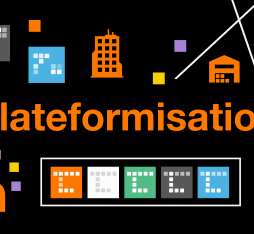• The data-driven approach, advocated by Adrien Sedeau of INSEP, reaches beyond traditional criteria to take into account elements like maturity, sports history and progress curves to create tailormade training programmes that optimize recovery and reduce the risk of injury.
• New AI-based tools that deliver accurate decisions in seconds like FIFA’s Semi-Automated Offside Technology (SAOT), which featured in the 2022 World Cup, are revolutionizing refereeing, and opening up new horizons in the management and understanding of team sports.
In the world of professional sports, data analytics is increasingly viewed as an essential tool to improve the performance of top-ranked athletes. Adrien Sedeaud, of the French National Institute of Sport, Expertise, and Performance is convinced of the importance of the new technology, which he believes can also “reveal undiscovered potential” that might otherwise go unnoticed by coaches using traditional methods. For the researcher, the scope of performance criteria should now be extended to take into account various parameters such as maturity, pubertal stage, practice history and progress curves. “The goal is to ensure adequate recovery times and to work on the prevention of injuries,” two elements that he believes are crucial to the management of training programmes.
A milestone in the history of professional sports, AI-driven analytics now offer a wide range of opportunities to improve athletic performance.
The growing impact of AI in sports
With help from artificial intelligence, coaches and managers can now make sense of wealth of data from team sports, and in particular soccer. In late 2020, Google DeepMind researchers presented an article in which they outlined plans to collaborate with Liverpool FC on a system with the capacity to process raw video and generate advice for players before, during and after matches. Video analysis also figured large in the 2022 World Cup in which Semi-Automated Offside Technology (SAOT) provided support for referees who often have to rule on the legality of complex situations. The SAOT technology uses location data to map player positions and delivers precise decisions within seconds in the event of a possible offside. Data is also collected from the ball, which transmits its location more than 500 times per second, and from 12 cameras in the stadium, which track 29 different points on each player’s body. The system uses this information to generate a 3D image showing an offside line and players’ positions relative to it, which is also available to the referee and television viewers.
AI is also becoming established in combat sports, notably in the form of computer vision technology. A new system developed by the startup Jabbr automatically analyses fights to extract statistics that can help participants to better understand their performance and improve their tactics.
The race to collect data
In the world of French sports, Adrien Sedeau has been struck by an upsurge in enthusiasm for analytics. “Our Latin culture often acts as a brake on the adoption data-driven approaches,” points out the researcher, who emphasizes notable advances made by the French rugby, skiing and swimming federations which have been collecting data for decades. The researcher is also eager to share his enthusiasm for the Sport Data Hub initiative launched in 2020 to provide French athletes with a competitive edge in the 2024 Olympic Games. “The aim is to disseminate data culture and encourage the emergence of communities that share best practices. In anticipation of the Paris Games, the priority research program targeting ultra-high performance has been set up with a budget of 20 million euros to support top-level athletes.” Among several of the funded projects piloted by INSEP, Detect tracks young French athletes and estimates their chances of winning medals in the upcoming Olympic and Paralympic Games by analysing their performances in the competitive context of their field. With PerfAnalytics, the institute is developing a video analysis tool that can identify performance indicators, diagnose the effectiveness of individual movements and model action sequences for particular parameters (equipment, opponents, referees etc.). For its part, Paraperf gathers data on wheelchair sports, which is made available to coaches and disabled athletes with a view to optimizing their chances of winning podium places in Paralympic competition. Finally, the Empow’her project is studying the impact of athletes’ periods and menstrual cycles on sporting performance.
Combined with AI, data analytics is breaking new ground in high-level sports, offering numerous opportunities to improve performance, optimize training and redefine strategies, while tackling challenges related to culture, regulation and ethics. However, for Sedeau, while the field of possibilities is vast, researchers will still have to contend with difficulties posed by human limits (time constraints, cognitive biases), technological limits (measurement and restitution biases), conceptual limits (prediction errors), regulatory limits (RGPD), and even ethical limits. “Among the cognitive biases, we notably have interpretive bias. When interpreting the same result, different coaches will not necessarily come to the same conclusions. When it comes to protecting personal data, anonymization techniques also have their limits. It’s easy to identify who’s behind a given record registered on a given date.” In other words, as with other “autonomous” technologies, human supervision and ethical oversight will continue to play a vital role.








